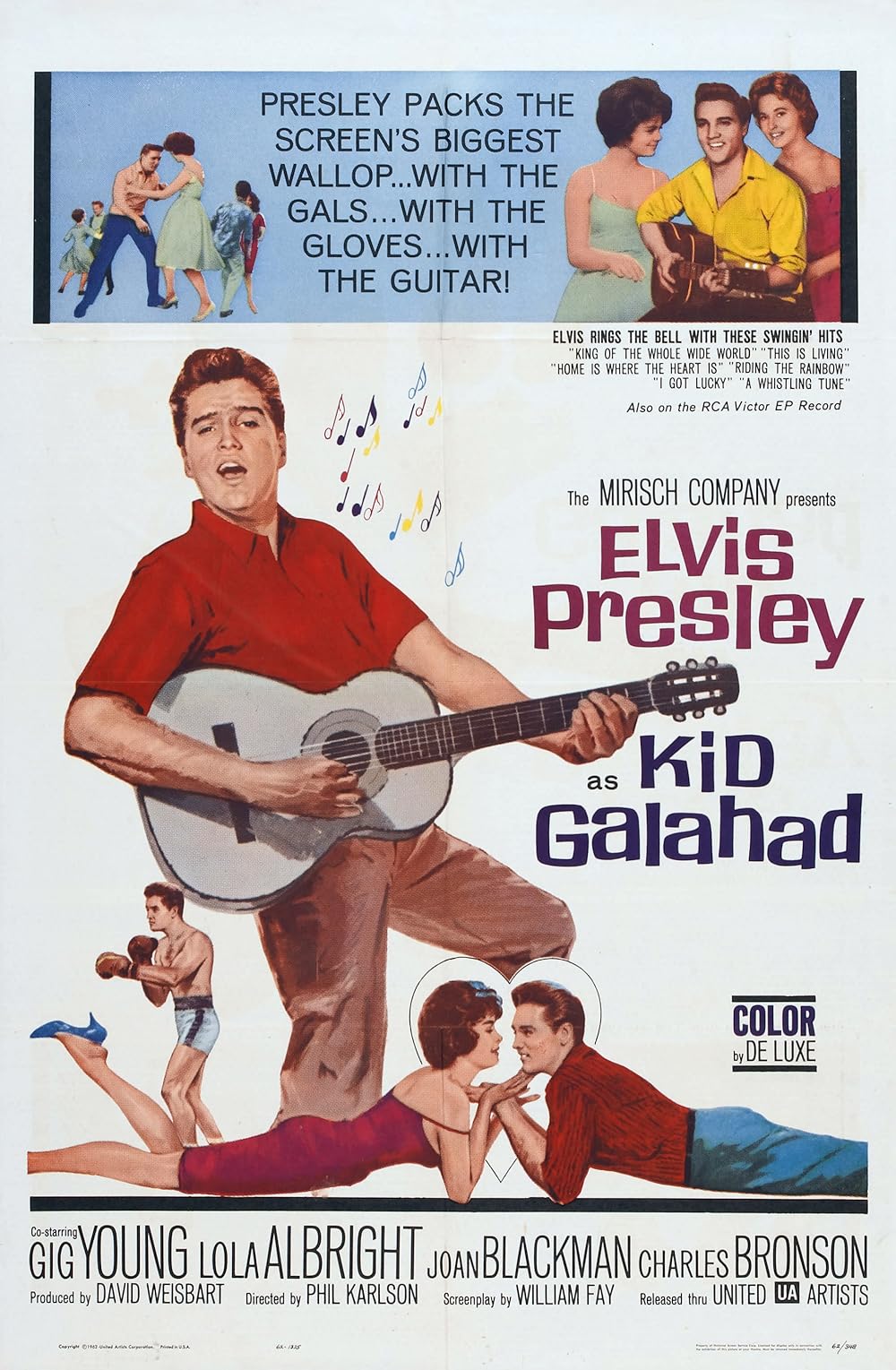Elvis Presley’s 1962 rock, “I Got Lucky,” wasn’t always destined for such a sunny title. Originally conceived for the film “Kid Galahad,” the song, then called “Lucky Star,” emerged from a period of personal strife for the King.

Presley, fresh off a tumultuous breakup with his girlfriend Anita Wood, poured his heartache into the lyrics. Lines like “Never found a four leaf clover to bring good luck to me,” and “No rabbit’s foot, no lucky star, no magic wishing tree,” echoed his sense of lovelorn despair.
But as fate would have it, luck took a turn. Songwriter and producer Joy Butler recognized the song’s potential and, with Elvis’ blessing, reworked it into the upbeat, optimistic anthem we know today. The lyrics transformed, replacing despondency with newfound hope: “Got no rainbow ’round my shoulder, no horseshoe on my door / But I got you to hold me tight, and who could ask for more?”

Released as part of the “Kid Galahad” soundtrack, “I Got Lucky” resonated with audiences. Its infectious melody and Elvis’ charismatic performance captured the essence of newfound love and defied the odds, reaching the top 10 on the Billboard Hot 100.
The song’s success transcended the charts. It became a staple of Elvis’ live shows, with his energetic renditions further amplifying its joyful spirit. The catchy tune also found its way into popular culture, appearing in films and television shows, solidifying its place as a timeless classic.
“I Got Lucky” serves as a testament to the transformative power of music and the resilience of the human spirit. It reminds us that even in the midst of heartbreak, a lucky turn can bring unexpected joy, and sometimes, all it takes is a change of perspective and a catchy tune to turn things around. So, the next time you hear “I Got Lucky,” remember the journey behind the song, and let its optimistic spirit fill you with a little bit of Elvis-inspired luck.
Video:
Elvis Aaron Presley, often referred to as the “King of Rock and Roll,” was born on January 8, 1935, in Tupelo, Mississippi, USA. He rose to prominence in the mid-1950s, becoming one of the most iconic and influential figures in the history of popular music. Presley’s musical journey began at an early age when he started singing in church and listening to various genres of music, including gospel, blues, and country. In 1954, he signed a recording contract with Sun Records, where he began his career blending elements of rockabilly, rhythm and blues, and country music. His breakthrough came with the release of his first single, “That’s All Right,” followed by a string of hits such as “Heartbreak Hotel,” “Hound Dog,” and “Jailhouse Rock.” With his charismatic stage presence, distinctive voice, and provocative dance moves, Presley captured the hearts of audiences worldwide, revolutionizing the music industry and popular culture. Presley’s impact extended beyond music; he also found success as an actor, starring in a series of films throughout the 1960s. Despite his commercial success, he faced criticism from some quarters for his crossover into mainstream entertainment and the perceived dilution of his musical authenticity. Throughout his career, Presley struggled with the pressures of fame, leading to personal challenges, including substance abuse and health issues. Despite these obstacles, he remained a beloved figure, revered for his contributions to music and his enduring legacy. Tragically, Elvis Presley passed away on August 16, 1977, at the age of 42, leaving behind a legacy that continues to resonate with generations of fans. He was posthumously inducted into the Rock and Roll Hall of Fame, and his music remains a timeless testament to his enduring talent and cultural impact.

